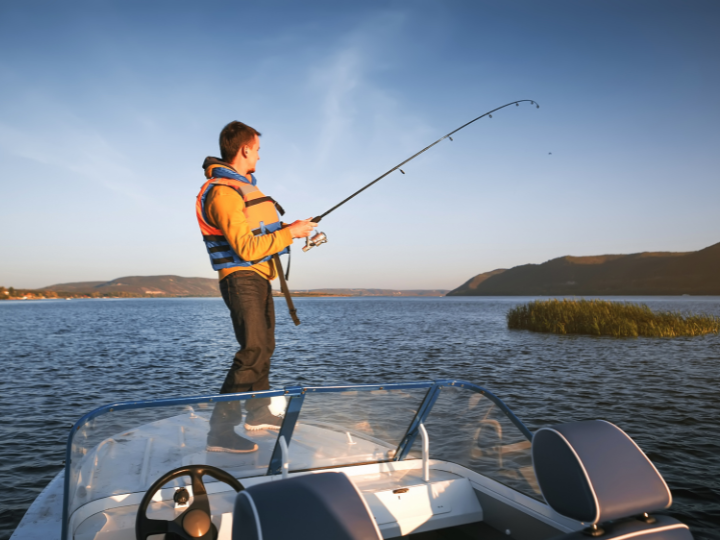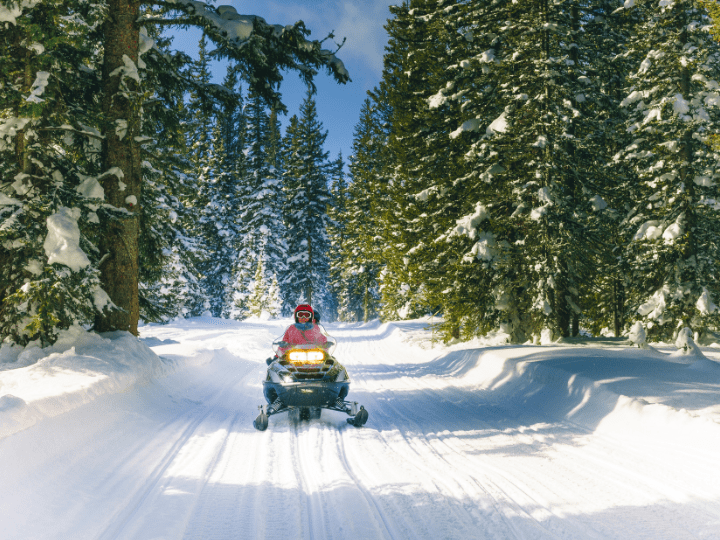Ontario is home to over 250,000 lakes, making it a dream destination for anglers of all levels. Whether you’re casting from the dock at the cottage or heading out on a boat for a full day of fishing, there’s one thing that should always be part of your tackle box: a valid fishing license.
Understanding how a fishing license works in Ontario is key to staying on the right side of the law, and helping to protect the province’s natural ecosystems. From who needs a license, to the cost and rules for keeping your catch, this guide will walk you through everything you need to know before you hit the water.
Who Needs a Fishing License in Ontario?
In Ontario, most people aged 18-64 need a valid fishing license to fish in public waters. The license allows you to catch and keep fish according to provincial regulations, including species-specific limits, seasons, and zones.
There are two parts to an Ontario fishing license:
1. Outdoors Card – a plastic ID card that is valid for 3 years.
2. Fishing License Tag – either a sport fishing license or conservation fishing license
You do not need a license if you are:
- Under the age of 18
A Canadian resident 65 years or older
An Indigenous person with treaty fishing rights
A guest fishing during one of Ontario’s free fishing weekends (typically held in February, May, July, and September)
Even if you’re exempt, it’s still recommended to carry valid ID when fishing, such as a government-issued ID or proof of age/residency.
What Type of Fishing License Should You Get?
Ontario offers two types of fishing licenses, each with different catch limits:
Sport Fishing License
This is the standard license and allows full catch and possession limits. It’s ideal for those who want to fish more frequently or take home a larger number of fish.
Conservation Fishing License
This license has reduced catch and possession limits and is designed for people who prefer catch-and-release fishing or don’t plan to keep many fish. It’s also slightly less expensive.
How Much Does an Ontario Fishing License Cost?
Fishing license prices vary based on residency and the type/duration of the license. Here’s a general breakdown for Canadian residents (as of 2025):
Outdoors Card: $8.57 (valid for 3 years)
Sport Fishing License:
1 year: ~$27.70
3 years: ~$83.10
Conservation Fishing License:
1 year: ~$16.46
3 years: ~$49.38
Non-residents and Ontario residents aged 65+ will see different pricing structures. Licenses can be purchased online through the Ontario Fish and Wildlife Licensing Service, at participating ServiceOntario locations, or from select tackle shops and outdoors stores.
Tip: Print or save a digital copy of your license and Outdoors Card. Officers on the water may ask to see proof.
Fishing Seasons and Catch Limits
Fishing in Ontario is regulated by fisheries management zones (FMZs). Each zone has specific rules around open and closed seasons, daily catch and possession limits, size restrictions and bait usage.
For example, the season for walleye might open in mid-May and close in late fall, depending on the zone. Some species, like lake trout, have narrower windows or are catch-and-release only in certain waters. Catch limits vary by species and license type. If you have a Sport Fishing License, you might be allowed to keep 6 bass per day. A Conservation License might only allow 2.
Water Safety and Boating Rules for Anglers
With thousands of lakes and rivers, boating is a big part of the fishing experience in Ontario. But before you hit the water, make sure you’re following provincial and federal safety laws.
Boating Safety Must-Haves:
- Valid boating license (Pleasure Craft Operator Card) if you’re operating a motorized boat
Life jackets or personal flotation devices for everyone onboard
Safety kit including a whistle, waterproof flashlight, bailer, and rope
Navigation lights if operating after sunset
No alcohol while operating a boat—Ontario’s impaired boating laws are similar to impaired driving laws
Even if you’re fishing from shore or a dock, it’s still smart to take precautions like wearing proper footwear, checking weather forecasts, and keeping a phone or radio handy in case of emergencies.
Safety tip: Cold water shock is a real risk, especially in spring and fall. Wear a life jacket at all times when on the water – even strong swimmers aren’t immune.
Protecting Ontario’s Fisheries
Ontario’s licensing system isn’t just a formality -it helps fund conservation efforts that protect the province’s freshwater fish populations. License fees go toward:
- Fisheries research and management
Fish stocking programs
Habitat restoration projects
Public education
By purchasing and following the conditions of your license, you’re helping ensure that Ontario’s lakes and rivers remain healthy and full of fish for future generations.
_
Fishing in Ontario offers world-class opportunities to relax, explore nature, and reel in some truly unforgettable catches. But before you cast your line, it’s your responsibility to understand the licensing rules, catch limits, and safety regulations that keep the sport sustainable and safe.
Whether you’re a weekend angler or a first-time visitor to cottage country, make sure you’re licensed, legal, and ready to enjoy the best of Ontario’s freshwater fishing.
Need more outdoor safety tips or help protecting your seasonal property or watercraft? We’re here to help with custom insurance coverage for cottages, boats, trailers, and more. Contact us today for expert advice tailored to your summer lifestyle.












